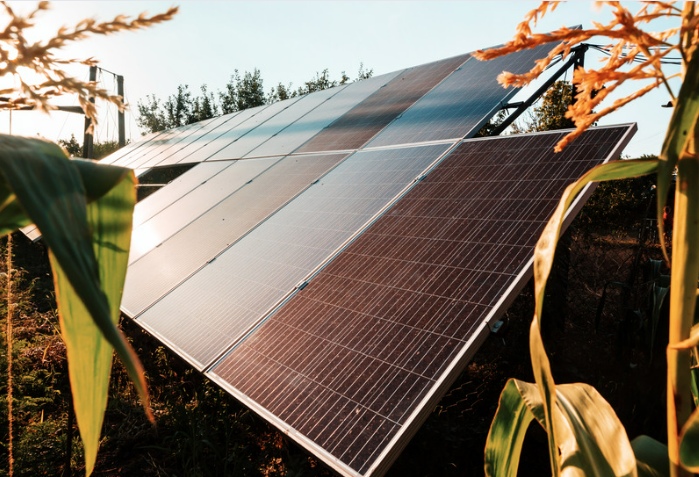Menu
Menu


Updated on Feb 2, 2024 | 6 min read
Solar EV charging uses sunlight to recharge electric vehicles globally. As e-mobility technology improves, home solar EV charging becomes more convenient, cost-effective, and eco-friendly. To optimise this setup, consider adding a battery storage system. Battery storage offsets solar charging limitations by providing renewable electricity day and night, reducing utility bills through peak shaving and load shifting. Whether you currently charge with solar power or plan to, this guide aims to inform you about battery storage for EV solar charging, aiding your decision-making process.
Connect with 1C for expert advice on EV chargers
Solar battery storage works by storing excess electricity generated by solar panels during daylight hours. This surplus energy is stored in batteries for later use during times when solar generation is low or when energy demand is high. The stored electricity is released from the batteries to power household appliances or charge electric vehicles when needed. This process helps to increase solar energy usage, reducing reliance on the grid and providing a more reliable and sustainable power supply.

Solar panels themselves do not have batteries. They are used to capture sunlight and convert it into electricity, but they don’t store that electricity. However, batteries can be added to a solar panel system to store the electricity generated by the panels for later use. These batteries allow homeowners to use solar power even when the sun isn’t shining, like at night or during cloudy weather. So, while solar panels don’t have batteries, they can be added to make solar power available whenever needed.
Various types of batteries are used for storing solar power:
Pros | Cons |
Energy Independence | Initial Cost |
Backup Power | Limited Capacity |
Cost Savings | Maintenance Requirements |
Environmental Benefits | Lifespan |
Peak Load Management | Efficiency Loss |
Battery storage for solar EV charging offers numerous benefits:
Battery storage for solar EV charging offers significant advantages, including reliable energy backup, cost savings, flexibility, and environmental benefits. By storing solar energy and use it efficiently, homeowners can reduce their reliance on the grid, enhance energy independence, and contribute to environmental sustainability. Whether you’re currently using solar power or considering it for the future, incorporating battery storage can optimise your solar EV charging setup, providing a reliable and sustainable energy solution for your home and electric vehicles.
Solar battery systems are designed to store surplus energy generated by your PV system. They have the ability to monitor your home’s electricity usage. The internal battery management system will automatically redirect excess energy to the battery instead of sending it back to the grid.
The function of a battery in a solar system is to store excess energy generated by solar panels for later use, providing backup power and enabling energy independence.
The four main types of batteries used in the world of solar power are lead-acid, lithium-ion, nickel-cadmium and flow batteries.
© 2024 Massive Mobility Private Limited. All rights Reserved